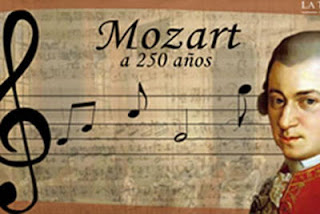Once upon a time, there existed a simpler way of life.
If a little boy wanted to become a musician, his parents would seek out the very best musician they could find, and he would study his instrument under that tutor’s guidance and wisdom, until he himself was a master. There weren’t exams, there weren’t bachelors and diplomas, but there was a thirst to learn and grow and master. Knowledge and arts weren’t passed down en masse in lecture theaters, but in the intimate setting of one musician sharing his findings with a younger, aspiring musician.
 | ||
| The Music Lesson - by Gustav Wentzel |
And was this antiquated technique successful? I think of Bach, Mozart, and Beethoven...I’d say it certainly was.
Back to the 21st century...When I first became ill as an 18 year old, I was firmly grounded in today’s mindset. I had achieved decent grades in school, and the next logical step was to embark on my Bachelor of Music. There were two main reasons: I wanted to continue studying the flute – as lessons cost around $100 per hour, I really couldn’t afford to learn unless I was at university where this fee is included in the degree. The second reason was that while I dreamt of performing, the reality of needing to pay for food and clothes meant that I’d probably have to teach the flute. And to teach, one needs to have a qualification.
blah. blah. blah. You know the next bit. My body wasn’t impressed by the long hours at university...the early mornings, late nights, stressful exams and performances. It got progressively more fed up with me, so I took a year off to let it settle down.
2012. I felt ready to experiment with a return. I was delighted to be studying the flute with an older lady who is a wonderfully experienced flautist, and whose spirit of music is so huge that it fills up the whole room. She is so very animated and rich in musicality; I feel I’ll explode with excitement over what she is passing down to me. I wouldn’t be bored if my lessons lasted for 12 hours at a time.
As my doctor aptly put it, “You probably did a little too much, too soon. But at least you tried and found out where you’re up to.”
The experiment was positive: I got a result. The result was that I’m still not well enough for the pressures of university. But there was one problem: I needed to withdraw from university because I was so ill, but I was having a love affair with the flute, and I couldn’t bear the thought of stopping lessons. How could we afford for me to continue? We looked at our budget...and squished... and squeezed... and maneuvered ...and decided that we could make it work. We would find a way.
Here’s a fascinating piece of information: I haven’t shed a tear over withdrawing from university. Three years ago I probably would have sobbed into my pillow for a month straight at the thought of ‘giving up my dream’. It's a big change of mindset yes, but I am excited: I get to focus on exercise and rest, which is what my illness requires of me. I get to be a wife and look after my favourite man, I get to invest in people...and I get to study the flute with a master, just like musicians did in an age gone by – passing down knowledge and skills from one to another. My education continues, without that hoop and hurdle jumping so crucial to 'the system'.
To quote my teacher:
"But I must say, I think that a Uni course of any sort can actually be an obstacle to true progress. The reason? Your life is mapped out for you, and you are not necessarily following the most constructive path. It's the difference between a river flowing freely and naturally, and a man-made canal."
There are so many things I’d like to do! I might join an orchestra, or a choir. I’ve done my AmusA diploma; I might do my LmusA too. I might teach the flute. I might try and work a few hours a week in an organic shop which I love. I might learn to cook...or sew.
I'm striving to learn and grow and love to the best of my ability.





